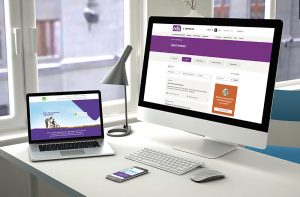When participants receive NDIS funds for their plan, it may be a little tricky allocating them, who can assist you, and what to do. First, you must choose from the three available options: self-management, plan-managed financing, or NDIA-managed funding. Knowing the distinctions between all three and how they work can go a long way toward assisting you in making that decision. Here is some more information about NDIS plan management to help you decide.
What is NDIS plan management, and how does it work?
NDIS plan management manages the money in your National Disability Insurance Scheme (NDIS) plan. There are various types of plan management, and picking the appropriate one is important. A financial transaction occurs whenever you use your NDIS plan to access a service or buy equipment. Every transaction involving funds from your plan must adhere to NDIS guidelines. You must monitor and account for them. Plan management is the decision you make about who is in charge of keeping track of your budgets and paying your service providers.
For more in-depth information, see What is NDIS Plan Management?
Types of NDIS plan management
You can manage your NDIS money in three ways: self-managed, plan-managed, or NDIA-managed. When applying for NDIS funding or renewing your plan, you can specify how you want your NDIS funds managed. Finally, the NDIA will assess and approve your application under Self, Plan, or NDIA Managed funding.
Self-management
Self-management is an option for those who want complete control over their NDIS plan. This may be your preferred option if you are comfortable organising your services, handling money, and completing complex paperwork. However, you are directly accountable for the financing in your plan when you self-manage. You must manage receipts, invoices, and service bookings yourself.
The Benefits of Self-Management
Self-management has numerous advantages. Among them are the following:
More options
You get to choose which supports to buy to help you meet the goals in your NDIS plan.
More freedom
You’ll be able to work with any provider (including Support Workers who provide services under their own ABN).
Ability to negotiate rates
You’ll be able to verify that your supports are a good value for money by negotiating the price and using the savings to buy additional or better-quality support.
Entire control over how you manage your NDIS funds
You will have complete control and responsibility over your NDIS plan and funding, allowing you to manage the budgets and payments within your plan.
The Drawbacks of Self-Management
Here are some of the drawbacks of self-management:
- Not being bound by the NDIS price guide – providers may occasionally want more money than the NDIS rate (and you may have to pay more for help)
- Time consuming- when you choose self-management, you must make many decisions and look at many possibilities.
- Payments and claims – you must pay invoices on time and process claims on the MyPlace Participant Portal.
- Audits are possible- you may get audited on occasion.
Planned Management
Another alternative is to have a third party, known as a “plan manager,” who will manage your plan on your behalf. This could be an accountant or one of the numerous plan management organisations that have sprung up since NDIS’ inception. The NDIA will provide financing in your plan to pay for a Plan Manager as well. The plan manager will pay service providers on your behalf, assist you in keeping track of cash, and handle financial reporting for you. This means you won’t have to manage employees or invoicing.
The Benefits of Plan Management
- You are not limited to hiring registered providers with the NDIS, and can continue to use your current providers or hire anybody you like.
- You won’t have to worry about invoicing because a Plan Manager will pay your Providers for you
- Less administration—you don’t need to keep spending records in case of an audit because your Plan Manager will maintain records and necessary documents.
Drawbacks of Plan Management
Plan management has the following drawbacks:
- If you choose to engage a provider who charges more than the NDIS pricing range, you must pay the difference yourself. Furthermore, not all Plan Managers will be appropriate for you. For instance, you may have a Plan Manager who is late at paying invoices, inattentive, or just not suited for the job.
- Some Plan Managers may have a ‘Conflict of Interest’ if they supply all the services and try and encourage you to put your complete NDIS profile (support workers, equipment, support coordination, and plan management) with them.
Even with its few disadvantages, planned management still remains the most convenient form of NDIS plan management.
NDIA-management
The NDIA manages your funds, which means the NDIA will pay your providers on your behalf.
When your plan is agency-managed:
- You can select from several NDIS-registered providers.
- They use your financing to pay your providers electronically.
- Unregistered providers are not permitted.
- You can monitor your budget and check what claims providers are making against your NDIS funding by using the myplace site.
- The NDIA will handle your bookkeeping and spending records.
The Benefits of NDIA (Agency) Management
Some of the benefits of hiring NDIA management include:
- Less administration- no bills to pay, budgets to manage, or records to retain.
- There are plenty of possibilities for providers—the ability to choose from various NDIS registered service providers is still available.
- Simple budget NDIS plan management—using the NDIS myplace Participant Portal, available via the Participants MyGov account, you can examine budget balances.
The Drawbacks of NDIA (Agency) Management
Some of the drawbacks of using NDIA management include:
- You have fewer options and control because you can only choose NDIS-registered service providers.
- Limited financial transparency—you cannot obtain itemised invoices through your myplace interface.
- Changing service providers may take longer. The Participant’s preferred service provider reserves funding through a service booking.
- NDIS pricing guide caps apply, and most licensed service providers charge full price.
How Should You Manage Your NDIS Funding?
It’s a personal choice, but if you can acquire a Plan Managed NDIS financing option, you’ll have the best of both worlds. This means you’ll have more freedom and alternatives to Service Providers and a partner in your NDIS Plan Manager to help you organise and pay your invoices.
What works best for you and your unique circumstances should determine your approach towards handling your NDIS money. Participants may require and prefer different approaches, and preferences may change over time: there’s enough room for flexibility here.
If you wish to learn more, contact us at 1800 63 63 77.




